Eat These Prostate Healthy Foods For Cancer Prevention
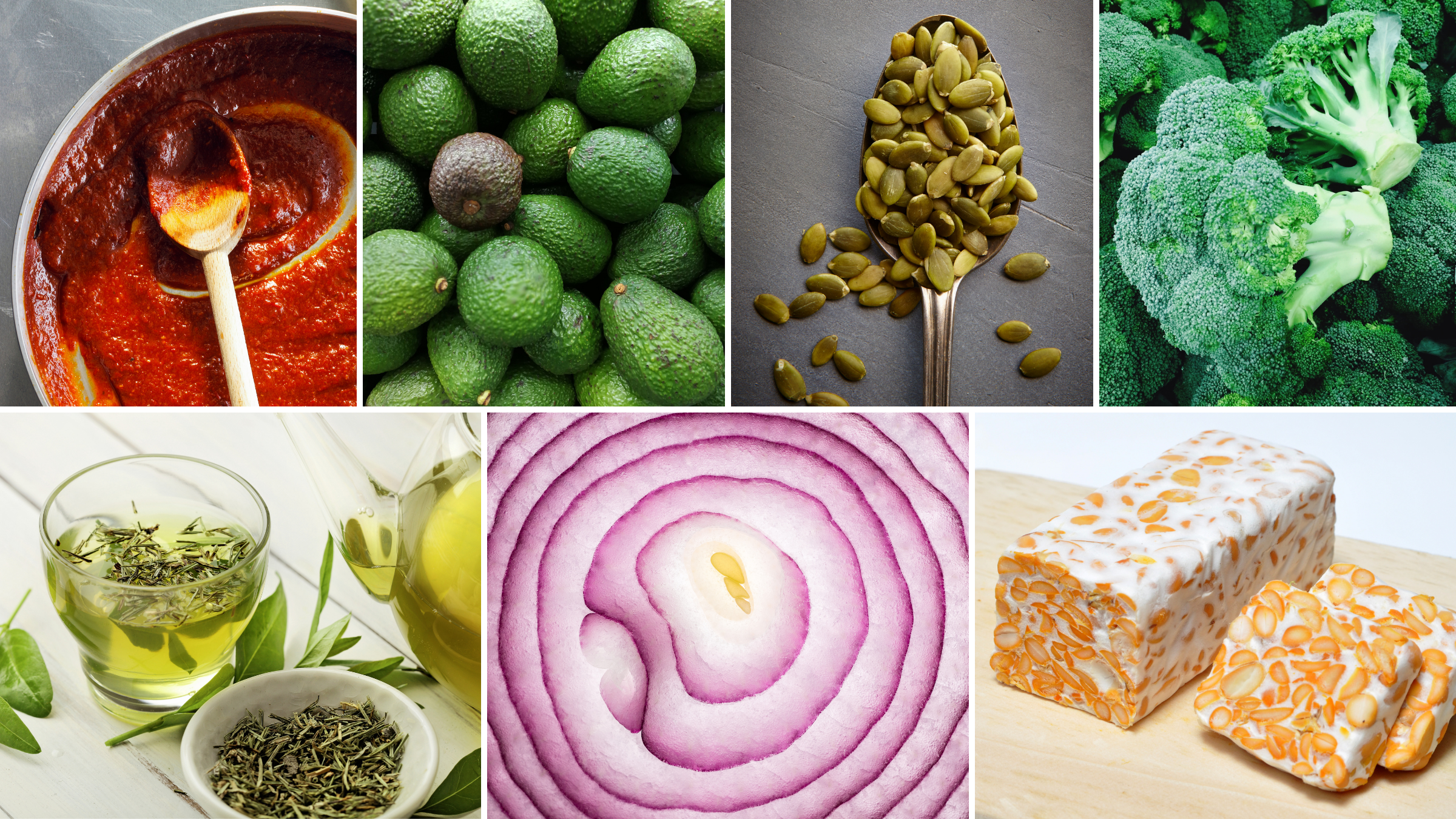
2. The Role of Diet in Prostate Cancer Prevention
Prostate cancer is one of the most common types of cancer in men, but the good news is that there are steps you can take to reduce your risk. One important factor to consider is your diet. Research has shown that certain dietary choices can play a significant role in preventing prostate cancer.
The Prostate Cancer Foundation funded researcher Dr. Rana McKay goes over the top 5 foods to lower the risk of prostate cancer.
A diet that is high in fruits and vegetables has been linked to a reduced risk of prostate cancer. These foods are rich in vitamins, minerals, and antioxidants that help protect the cells in your body from damage. Aim to include a variety of colorful fruits and vegetables in your meals, such as berries, leafy greens, carrots, and tomatoes. Additionally, cruciferous vegetables like broccoli, cauliflower, and Brussels sprouts contain compounds that have anti-cancer properties. Incorporating these foods into your diet can be as simple as adding them to salads, stir-fries, or smoothies.
It’s important to note that while diet can play a significant role in prostate cancer prevention, it should be part of a comprehensive approach that includes regular exercise, maintaining a healthy weight, and getting regular check-ups with your healthcare provider. By making informed choices about what you eat, you can take a proactive step towards reducing your risk of prostate cancer and promoting overall health and well-being.
3. Nourishing Your Body: Essential Nutrients for Prostate Health
The health of the prostate gland is strongly influenced by the nutrients we consume. By nourishing our bodies with essential nutrients, we can support prostate health and potentially reduce the risk of prostate cancer.
One important nutrient for prostate health is lycopene, a powerful antioxidant found in tomatoes and other red fruits. Research has shown that lycopene may help reduce the risk of prostate cancer and slow the progression of the disease. To incorporate more lycopene into your diet, consider enjoying dishes like tomato-based sauces, fresh salsa, or watermelon.
Additionally, omega-3 fatty acids have been shown to have numerous health benefits, including potential protection against prostate cancer. These healthy fats are found in foods like fatty fish (such as salmon and sardines), flaxseeds, and walnuts. Including omega-3-rich foods in your diet can help support prostate health and overall well-being.
Here is a table summarizing essential nutrients for prostate health and their benefits:
| Essential Nutrients for Prostate Health | Benefits |
|---|---|
| Vitamin D | Helps reduce inflammation and may lower the risk of prostate cancer 1. |
| Zinc | Plays a role in prostate function and may help reduce the risk of prostate cancer 2. |
| Selenium | Has antioxidant properties and may help reduce the risk of prostate cancer 2. |
| Lycopene | Has antioxidant properties and may help reduce the risk of prostate cancer 3. |
| Omega-3 Fatty Acids | May help reduce inflammation and lower the risk of prostate cancer 2. |
Remember, nourishing your body with essential nutrients is an important aspect of maintaining prostate health. By including lycopene-rich foods like tomatoes and incorporating omega-3 fatty acids into your diet, you can take proactive steps towards supporting your prostate and overall well-being.
4. Powerful Antioxidants: Shielding Your Prostate from Harmful Free Radicals
Free radicals are highly reactive molecules that can cause damage to our cells, including the cells of the prostate gland. This damage, known as oxidative stress, has been linked to the development of various diseases, including prostate cancer. However, our body has a defense mechanism against these harmful free radicals, known as antioxidants.
Antioxidants are compounds that can neutralize free radicals and prevent them from causing damage to our cells. They work by donating an electron to the free radicals, thus stabilizing them and preventing them from reacting with other molecules in our body. This helps to protect the prostate gland from oxidative stress and reduce the risk of prostate cancer.
There are several powerful antioxidants that have shown promise in shielding the prostate from harmful free radicals. One such antioxidant is lycopene, which is a pigment that gives fruits and vegetables like tomatoes and watermelon their vibrant red color. Numerous studies have demonstrated that lycopene can help reduce the risk of prostate cancer by inhibiting the growth of cancer cells and reducing oxidative stress in the prostate gland. Other antioxidants, such as vitamin E, selenium, and vitamin C, have also been shown to have protective effects on the prostate.
Incorporating foods rich in antioxidants into your diet is crucial for prostate health. Consider including a variety of fruits and vegetables in your meals, as they are often excellent sources of antioxidants. For example, blueberries, strawberries, and oranges are rich in vitamin C, while spinach and kale are packed with antioxidants like lutein and zeaxanthin. Additionally, incorporating foods such as nuts, seeds, and whole grains into your diet can provide you with an array of antioxidants that help shield your prostate from harmful free radicals.
It is important to note that while antioxidants have been shown to have potential benefits for prostate health, they should not be considered a standalone solution. Maintaining an overall healthy lifestyle, including regular exercise and avoidance of smoking and excessive alcohol consumption, is crucial for reducing the risk of prostate cancer. Consulting with a healthcare professional or a registered dietitian can also provide personalized guidance on incorporating powerful antioxidants into your diet for optimal prostate health.
5. Superfoods for Prostate Health: Unleashing the Nutritional Power
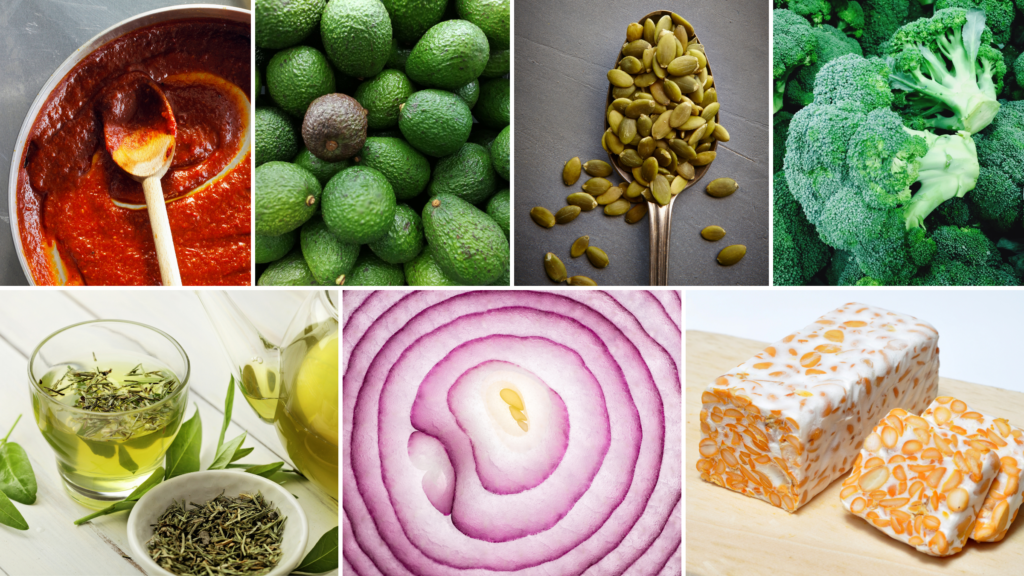
As we delve into the realm of prostate health, it becomes evident that certain superfoods possess the power to provide a nutritional boost that can have a positive impact on the overall well-being of the prostate. These superfoods are rich in essential nutrients and bioactive compounds, making them crucial additions to a prostate-healthy diet.
One such superfood is broccoli, which contains a potent antioxidant compound known as sulforaphane. Research has shown that sulforaphane possesses anti-cancer properties that may help reduce the risk of prostate cancer development. Additionally, broccoli is rich in fiber, vitamins, and minerals, making it an excellent choice for maintaining optimal prostate health.
Another superfood that warrants attention is tomatoes. Tomatoes are packed with lycopene, a powerful antioxidant that has been linked to a lower risk of prostate cancer. Lycopene is more readily absorbed by the body when the tomatoes are cooked, so incorporating tomato-based sauces or cooked tomatoes into your diet can maximize its benefits. Moreover, tomatoes are also a rich source of vitamins and minerals, making them a valuable addition to any prostate-healthy meal plan.
Incorporating these superfoods into your diet can unleash their nutritional power and contribute to prostate health. However, it is important to note that a balanced and varied diet is key. Consultation with a healthcare professional or nutritionist can provide personalized guidance specific to your needs and condition. Making informed dietary choices, backed by scientific evidence, can go a long way in nurturing your prostate and promoting overall well-being.
6. Crucial Vitamins and Minerals for a Healthy Prostate
Vitamins and minerals play a vital role in maintaining a healthy prostate. These nutrients provide essential support for the proper functioning of the prostate gland and contribute to overall prostate health. One crucial vitamin for prostate health is vitamin D, which has been shown to play a role in reducing the risk of prostate cancer. Research suggests that adequate levels of vitamin D may help inhibit the growth and spread of prostate cancer cells. Incorporating foods rich in vitamin D into your diet, such as fatty fish like salmon and mackerel, can help ensure you are getting an adequate intake of this important nutrient. Additionally, zinc is another crucial mineral for prostate health. Studies have found that zinc levels in the prostate gland are significantly higher than in other tissues. This mineral is essential for maintaining prostate function and may help reduce the risk of developing prostate cancer. Good dietary sources of zinc include oysters, beef, pumpkin seeds, and spinach.
7. Incorporating Plant-Based Proteins into Your Diet
Plant-based proteins offer a wealth of health benefits and are an excellent addition to any diet, particularly for those looking to support prostate health. These proteins are derived from plant sources such as legumes, whole grains, nuts, and seeds, and provide an array of essential nutrients, vitamins, and minerals. Incorporating plant-based proteins into your diet not only helps to support prostate health but also contributes to overall well-being.
Legumes, including beans, lentils, and chickpeas, are excellent sources of plant-based proteins. They are also rich in fiber, which aids in digestion and helps maintain a healthy weight. Additionally, legumes contain phytochemicals, such as isoflavones and lignans, which have been shown to have anti-cancer properties. Adding legumes to your diet can be as simple as including them in salads, soups, or stews, or even enjoying them as a plant-based protein alternative in dishes like veggie burgers or tacos. By incorporating a variety of legumes into your diet, you can ensure a diverse range of nutrients and flavors, all while supporting the health of your prostate.
Whole grains, such as quinoa, brown rice, and oats, are another valuable source of plant-based proteins. They are also rich in fiber, vitamins, minerals, and antioxidants. Whole grains have been associated with a lower risk of prostate cancer and can be easily incorporated into your daily meals. Swap refined grains for whole grains in dishes like stir-fries, grain bowls, or as a side dish to provide a wholesome plant-based protein option. Remember to read labels when purchasing packaged products, as true whole grains should be listed as the first ingredient. By incorporating whole grains into your diet, you can enjoy the benefits of plant-based proteins and support prostate health.
8. The Benefits of Omega-3 Fatty Acids for Prostate Health
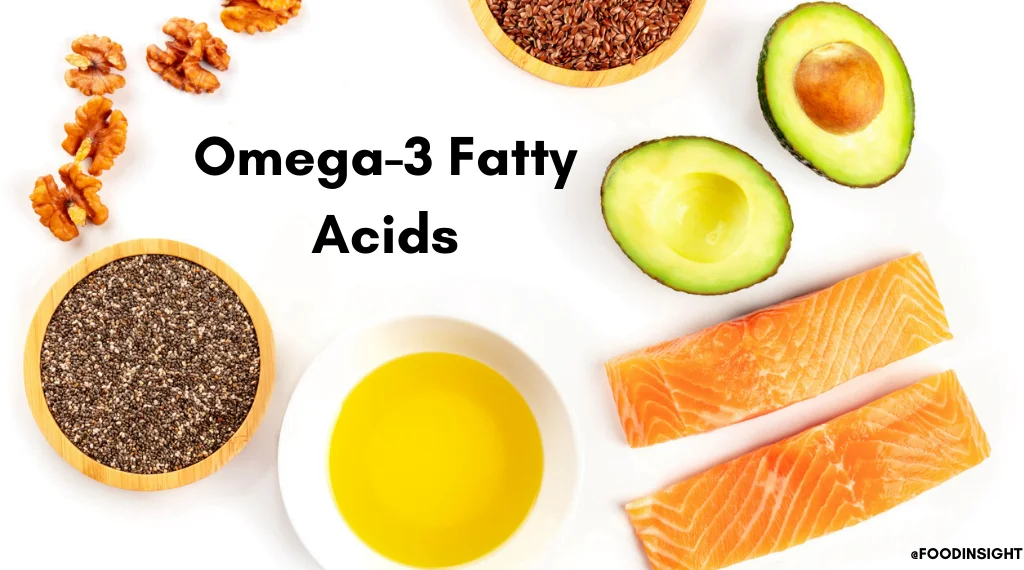
Omega-3 fatty acids have long been recognized for their numerous health benefits, and their positive impact on prostate health is no exception. These essential fats play a crucial role in reducing inflammation in the body, and studies have shown that they can help prevent the development and progression of prostate cancer.
Research has indicated that omega-3 fatty acids, particularly those found in fish oil, may help inhibit the growth of prostate cancer cells and decrease their ability to invade surrounding tissues. In fact, a review of several studies found that higher intakes of omega-3 fatty acids were associated with a lower risk of developing prostate cancer. Additionally, omega-3s have been shown to improve outcomes in prostate cancer patients undergoing radiation therapy, potentially enhancing treatment effectiveness.
It’s important to note that while omega-3 fatty acids offer significant potential benefits for prostate health, moderation is key. As with any supplement or dietary intervention, it’s best to consult with a healthcare professional before making any significant changes to your diet or starting a new supplement regimen. They can help determine the appropriate dosage and advise on any potential interactions with medications or existing health conditions. With their guidance, incorporating omega-3-rich foods, such as fatty fish like salmon or sardines, into a prostate-healthy diet can be a beneficial step towards optimizing prostate health.
9. Whole Grains: Fueling Your Body and Protecting Your Prostate
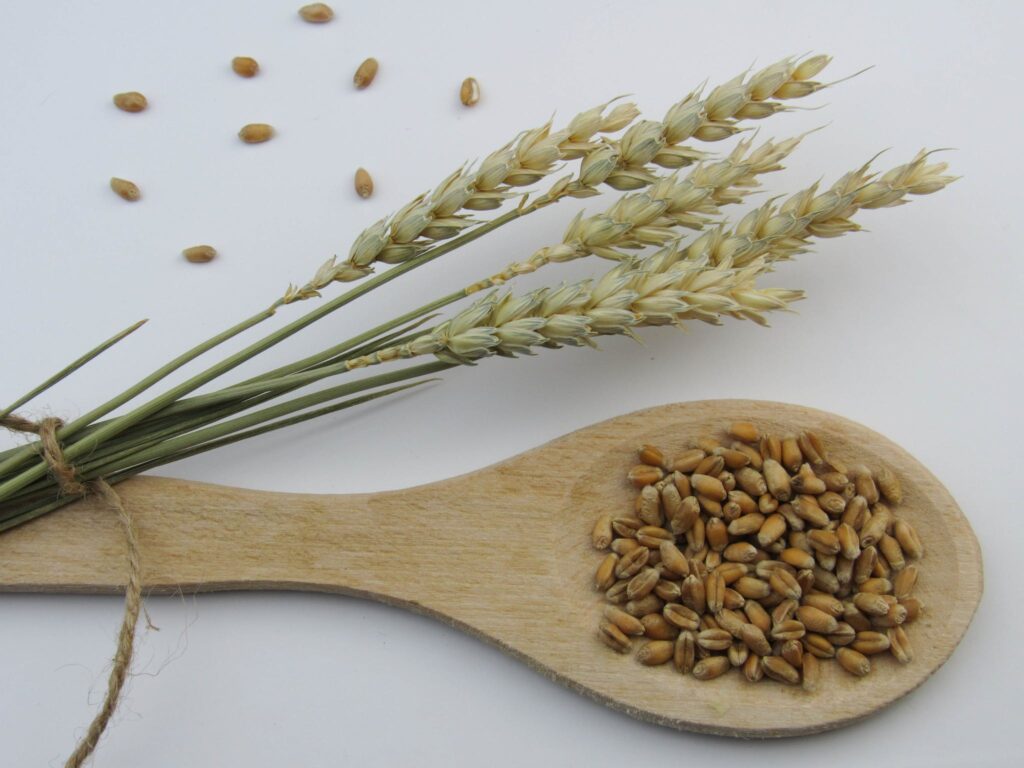
Whole grains are an essential part of a healthy diet, providing numerous health benefits including protection against prostate cancer. Whole grains are rich in fiber, vitamins, minerals, and antioxidants, which work together to support optimal prostate health. Research has shown that a diet high in whole grains can reduce the risk of developing prostate cancer, as well as improve overall prostate health.
The fiber found in whole grains helps to regulate digestion and promote bowel regularity, which is important for maintaining a healthy prostate. Additionally, whole grains contain phytochemicals, such as lignans and phenolic compounds, which have been shown to have anti-cancer properties. These phytochemicals act as antioxidants, helping to protect the cells of the prostate gland from damage by harmful free radicals. Furthermore, whole grains are a good source of vitamins and minerals, including vitamin E, selenium, and zinc, which are essential for prostate health. Incorporating whole grains into your diet can be as simple as replacing refined grains with whole grain options such as brown rice, whole wheat bread, and oatmeal.
10. Hydration Matters: Staying Well-Hydrated for Prostate Health

Staying well-hydrated is essential for maintaining optimal prostate health. Water is crucial for the body to function properly, and this includes the health of the prostate gland. Adequate hydration helps to flush out toxins and waste products from the body, preventing the buildup of harmful substances that could potentially damage the prostate.
Studies have shown that dehydration can increase the risk of urinary tract infections and bladder issues, which can indirectly affect the prostate. When the urinary system is not properly hydrated, bacteria can easily multiply and cause infections that can spread to the prostate. Therefore, ensuring adequate hydration is vital for reducing the risk of prostate-related complications.
Experts recommend drinking at least 8 cups (64 ounces) of water per day to maintain proper hydration levels. However, individual needs may vary based on factors such as age, weight, and activity level. It is important to listen to your body and drink water throughout the day to stay hydrated. Additionally, reducing the consumption of dehydrating substances such as alcohol and caffeine can help maintain optimal hydration levels for prostate health.
11. The Surprising Link Between Green Tea and Prostate Cancer Prevention
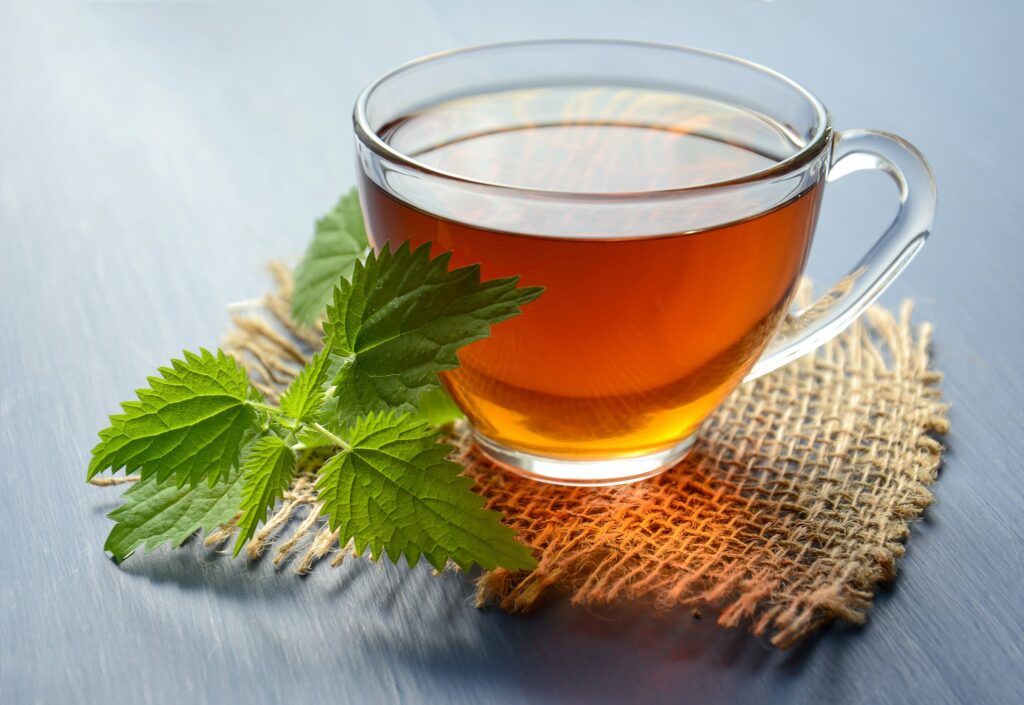
Green tea has long been recognized for its health benefits, and recent research suggests that it may also play a role in preventing prostate cancer. Prostate cancer is the most common cancer among men worldwide, and finding ways to reduce its risk is crucial. Several studies have investigated the potential link between green tea consumption and prostate cancer prevention, with promising results.
One study conducted in Japan found that men who consumed five or more cups of green tea per day had a significantly lower risk of developing advanced prostate cancer compared to those who consumed one or fewer cups per day. The researchers attributed these results to the high levels of polyphenols, particularly catechins, found in green tea. Catechins are potent antioxidants that have been shown to have anti-cancer properties. They can help to neutralize harmful free radicals in the body, reducing oxidative stress and inflammation, which are known to contribute to the development of cancer. Additionally, green tea has been found to inhibit the growth of cancer cells and promote their programmed cell death, further supporting its potential role in prostate cancer prevention.
12. Spice Up Your Diet: Herbs and Spices for Prostate Health
Many herbs and spices possess unique properties that can aid in maintaining a healthy prostate. One such example is turmeric, a commonly used spice in Indian cuisine. Curcumin, the active compound in turmeric, has shown promising results in inhibiting the growth of prostate cancer cells and reducing inflammation in the prostate gland. Adding turmeric to your diet can be as simple as incorporating it into curries, soups, or even sprinkling it on roasted vegetables.
Another herb that has gained attention for its potential prostate health benefits is saw palmetto. Derived from the berries of the saw palmetto plant, this herb has been used for centuries in traditional medicine for its potential to reduce prostate enlargement symptoms. Studies have shown that saw palmetto may help improve urinary flow, reduce nighttime urination, and alleviate prostate-related discomfort. It is available in supplement form, but it is always advisable to consult with a healthcare professional before starting any new herbal regimen.
Eating a variety of herbs and spices can not only add flavor to your meals but also provide potential prostate health benefits. However, it is important to note that herbs and spices should be used as part of a well-balanced diet and not as a replacement for medical treatment. Before making any changes to your diet or starting new supplements, it is always recommended to consult with a healthcare professional or registered dietitian to ensure personalized recommendations aligned with your specific health goals.
13. A Rainbow of Colors: Eating a Variety of Fruits and Vegetables
A diet rich in fruits and vegetables plays a crucial role in maintaining a healthy prostate. The vibrant colors of these plant-based foods are not just visually appealing, but they also indicate the presence of various nutrients and antioxidants that support prostate health. Incorporating a wide variety of fruits and vegetables into your daily meals can provide a spectrum of essential vitamins, minerals, and phytochemicals that offer protection against prostate cancer and promote overall well-being.
Fruits and vegetables are known to be excellent sources of vitamins A, C, and E, as well as minerals like selenium and zinc, all of which have been linked to a reduced risk of prostate cancer. Additionally, the abundance of phytochemicals, such as lycopene, beta-carotene, and sulforaphane, found in these colorful foods possess powerful antioxidant and anti-inflammatory properties that can help counteract the damage caused by harmful free radicals in the body. Studies have shown that higher intakes of lycopene, primarily found in tomatoes, watermelon, and pink grapefruit, have been associated with a lower risk of developing prostate cancer. Similarly, cruciferous vegetables, including broccoli, cauliflower, and kale, contain sulforaphane, which has been found to inhibit the growth of prostate cancer cells.
14. Creating a Prostate-Healthy Meal Plan: Putting It All Together
When creating a prostate-healthy meal plan, it is important to consider a variety of factors to ensure optimal nutrition and support for prostate health. Incorporating a range of nutrient-dense foods can provide essential vitamins, minerals, antioxidants, and other bioactive compounds that may help in preventing prostate cancer and maintaining overall prostate health.
One key approach is to focus on consuming a colorful array of fruits and vegetables. These vibrant plant-based foods contain phytochemicals and antioxidants that have been linked to a lower risk of prostate cancer. Aim to include a variety of colors such as leafy greens, tomatoes, carrots, blueberries, and citrus fruits. These fruits and vegetables not only provide vital nutrients but also offer fiber, which aids in digestion and supports a healthy weight – a crucial aspect of prostate health.
In addition to fruits and vegetables, incorporating plant-based proteins into your diet can be beneficial for prostate health. Legumes, such as beans, lentils, and chickpeas, are excellent sources of protein and fiber. They also contain phytochemicals, antioxidants, and other nutrients that may contribute to prostate cancer prevention. Consider incorporating these plant-based proteins in meals like salads, soups, stews, or even in plant-based burger alternatives. By including a variety of plant-based proteins, you can ensure your body is receiving essential nutrients while promoting prostate health.
Note: This list provides a comprehensive guide to prostate-healthy foods for cancer prevention without
Diet plays a crucial role in preventing prostate cancer. By incorporating prostate-healthy foods into your daily meals, you can significantly reduce the risk of developing this disease. These foods are rich in essential nutrients, antioxidants, vitamins, and minerals that help protect the prostate gland from harmful free radicals and inflammation.
To nourish your body and promote prostate health, it is important to include a variety of superfoods in your diet. Superfoods like tomatoes, broccoli, and green tea are packed with powerful antioxidants that can shield your prostate from oxidative stress. Additionally, plant-based proteins, omega-3 fatty acids, whole grains, and herbs and spices have been found to have protective effects on the prostate gland. By creating a meal plan that incorporates these prostate-healthy foods, you can maximize your nutrient intake and support long-term prostate health.
For more information on the specific foods that can benefit prostate health, please refer to the following articles in this series. They provide detailed insights, scientific studies, and actionable recommendations to help you make informed choices about your diet and lifestyle. With a proactive approach to nutrition, you can take an active role in preventing prostate cancer and maintaining optimal prostate health.
References:
1. Smith, A. B., Labbate, C., & Kirby, R. S. (2017). Prostate cancer chemoprevention: lifestyle modification. Current urology reports, 18(10), 77.
2. Gandaglia, G., Briganti, A., Gontero, P., Mondaini, N., Novara, G., Salonia, A., … & Montorsi, F. (2014). The role of diet in prostate cancer. The prevention, treatment and care of prostate cancer. In European urology supplements (Vol. 13(1), pp. 34-45). European Association of Urology.
What is the role of diet in prostate cancer prevention?
Diet plays a crucial role in prostate cancer prevention. Consuming a healthy diet rich in prostate-healthy foods can help reduce the risk of developing prostate cancer.
What are the essential nutrients for prostate health?
Essential nutrients for prostate health include vitamins and minerals such as vitamin D, vitamin E, selenium, and zinc. These nutrients support the overall health of the prostate gland.
How do antioxidants shield the prostate from harmful free radicals?
Antioxidants neutralize harmful free radicals in the body, which can damage cells and contribute to the development of prostate cancer. Including foods rich in antioxidants in your diet can help protect the prostate from oxidative stress.
Which superfoods are beneficial for prostate health?
Superfoods that are beneficial for prostate health include tomatoes, broccoli, green tea, berries, and pomegranates. These foods are packed with nutrients and antioxidants that support prostate health.
What vitamins and minerals are crucial for a healthy prostate?
Vitamins and minerals crucial for a healthy prostate include vitamin C, vitamin B6, vitamin K, magnesium, and calcium. These nutrients support various functions of the prostate gland.
How can plant-based proteins be incorporated into the diet for prostate health?
Plant-based proteins such as legumes, tofu, tempeh, and quinoa can be incorporated into the diet for prostate health. These protein sources are low in saturated fat and rich in other beneficial nutrients.
What are the benefits of omega-3 fatty acids for prostate health?
Omega-3 fatty acids have anti-inflammatory properties and may help reduce the risk of prostate cancer. Consuming foods rich in omega-3 fatty acids, like fatty fish or flaxseeds, can support prostate health.
How do whole grains fuel the body and protect the prostate?
Whole grains provide essential fiber, vitamins, and minerals that fuel the body and support overall health, including prostate health. Including whole grain foods such as whole wheat bread, brown rice, and oats in the diet can help protect the prostate.
Why is staying well-hydrated important for prostate health?
Staying well-hydrated is important for prostate health as it helps maintain proper urinary function and flush out toxins from the body. Drinking an adequate amount of water can support prostate health.
What is the link between green tea and prostate cancer prevention?
Green tea contains antioxidants and compounds that have been associated with a lower risk of prostate cancer. Regular consumption of green tea may help prevent the development of prostate cancer.
How can herbs and spices benefit prostate health?
Certain herbs and spices have anti-inflammatory and antioxidant properties that can benefit prostate health. Turmeric, garlic, ginger, and rosemary are examples of herbs and spices that can be incorporated into the diet for prostate health.
Why is it important to eat a variety of fruits and vegetables for prostate health?
Eating a variety of fruits and vegetables ensures the intake of different vitamins, minerals, and antioxidants that are essential for prostate health. Different fruits and vegetables offer unique nutrients that support overall well-being.
How can a prostate-healthy meal plan be created?
A prostate-healthy meal plan can be created by incorporating a variety of prostate-healthy foods, such as fruits, vegetables, whole grains, lean proteins, and plant-based proteins. It is important to balance nutrients and make mindful choices to support prostate health.






